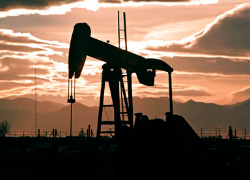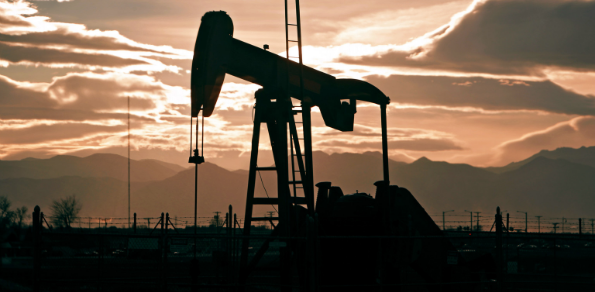Residents in Fort Collins and Broomfield, two cities in Colorado, will vote in November on whether to place 5-year moratoriums on hydraulic fracturing, or “fracking,” within city limits. Groups in both cities want to prevent fracking operations in order to allow more time for scientists to gather information on the effects fracking has on public health and the environment. The efforts of the groups in these cities reflect a greater trend in small towns across America to limit fracking operations in their municipalities. The potential environmental concerns are the largest motivation behind this trend, but it is also imperative to consider what the effects of banning fracking will mean in a global context.

Fracking is the procedure by which a combination of liquids and chemicals are pumped into a well until extreme pressures fracture the rock around the well. The fractures then act as conduits for oil and gas to collect and to be pumped back up the well to the surface. This method, combined with horizontal drilling, has permitted U.S. companies to extract oil and natural gas from what one reporter has called “otherwise unproductive” oil and natural gas wells.
The increased use of fracking in America has created a recent energy boom. According to a recent study, U.S. natural gas reserves have increased by 58% since 2007. A report in the Wall Street Journal stated that the “U.S. has inventories of crude oil and refined products, including the Strategic Petroleum Reserve, to cover 269 days of net imports, based on a rolling 12-month average.” The fracking processes that resulted in such surplus reserves have been linked to adding “more than $1,200 last year to the discretionary income of the average U.S. family.”
Although increased fracking has created many benefits, fracking has also been under intense criticism. Fracking has the potential to pose dangers to both human and environmental safety, earning the title of “one of the most destructive energy processes practiced today,” according to the Global Exchange. Further, the water used in fracking has the potential to intermingle with drinking water, which is especially alarming because the chemical compounds used in fracking have been cited as including chemicals known to cause cancer. Fracking also poses environmental concerns regarding the amount of water used, the potential for the release of pollutants, and as causing human-induced seismic activity. Anti-fracking groups also point to incidental environmental concerns from fracking, including the environmental damage necessary to reach the drill site and the storage of wastes generated from the fracking process, as reasons for prohibiting fracking.
Fracking and American Foreign Policy
From a domestic US foreign policy perspective, the view on the use of fracking is largely optimistic. The most readily apparent benefit from the fracking energy boom is that America will be less dependent on oil imports from the Middle East. Less reliance on oil from the Middle East has the potential to mitigate the effects that turmoil in the Middle East will have on oil supplies and rises in prices. Loren Stephy, writing for Forbes, states that increased output of American oil and natural gas from fracking “will provide a shield from the sorts of supply disruptions that could result from an attack on Syria.” Further, according to Keith Smith, writing for the Center for Strategic and International Studies, American allies in Europe are “clearly benefiting significantly from the U.S. gas glut.” The U.S. has been able to export natural gas to its European allies as a result from increases in domestic fracking usage. Natural gas exports to Europe translate into less reliance on imports into Europe from Russia, which has long used its natural gas exports to influence and pressure European nations.
While increased domestic fracking is seen as a benefit in terms of U.S. foreign policy, the optimistic view of less reliance on Middle Eastern oil and increased security of U.S. European allies relies on the assumption that the current levels of oil and gas output of fracking will continue unabated. As Business Insider writer Rob Wile notes, there is no consensus on how long the current fracking boom will continue to last. Although Wile’s study ultimately concludes that the energy boom will continue for some time, the fact there are differing opinions on the duration of the energy boom highlights the uncertainty inherent to projections of future domestic oil and gas output. As a result, the optimistic view of the potential gains wrought from increased domestic fracking in terms of foreign policy must be tempered by the potential for the current energy boom to bust.
International Reaction to Increased Fracking in the U.S.
America’s energy boom has also drawn positive reactions from nations around the world. Just as the U.S. views exporting natural gas into Europe as a benefit from its foreign policy perspective, that view is shared by European nations who are eager to be less reliant on Russian natural gas. Many countries view the U.S. energy boom as mitigating the dangers associated with nuclear energy. In light of the disaster at Fukushima, many nations are reconsidering their nuclear energy programs, with France seeking to reduce nuclear power to 50% by 2025 and Germany striving to eliminate their nuclear energy reactors by 2022. Countries seeking to reduce their nuclear energy programs are viewing the U.S. energy boom as the means to achieve nuclear-free energy programs.
While some nations are viewing the U.S. energy boom with enthusiasm, other nations are less receptive. With America becoming more self-sufficient in terms of its energy needs, OPEC nations are faced with the potential of losing the influence their oil-rich nations are able to wield in international politics. Saudi Arabia is particularly threatened by the American energy boom not only because oil exports to the U.S. have been reduced, but also by the prospect of the export of U.S. fracking technology to nations like India and China who are eager to lower their own dependence on oil from the Middle East. Further, the fracking process itself is under attack, having been banned outright in nations like France and Bulgaria, which may serve as a source of tension between the U.S. and other nations in discussions on the environment.
Conclusion
Myopically focusing on local concerns fails to account for the larger geopolitical context of the use of fracking. When voters in Broomfield and Fort Collins, and in numerous other small towns across America, enter the ballot booth in November to decide whether to impose a moratorium on fracking, their decisions have an international dimension. Voters are not only deciding whether or not to permit fracking, they are also determining possible reassessments of American foreign policy and alterations in the relationships America has maintained with the rest of the world. The fracking decisions, properly considered in their global context, may very well have ripple effects far beyond the city limits of Fort Collins and Broomfield, and the potential consequences of these decisions must be considered before voters determine whether to prohibit fracking.
Greg Henning is a 3L at the University of Denver Sturm College of Law and a Staff Editor for the Denver Journal of International Law and Policy.


